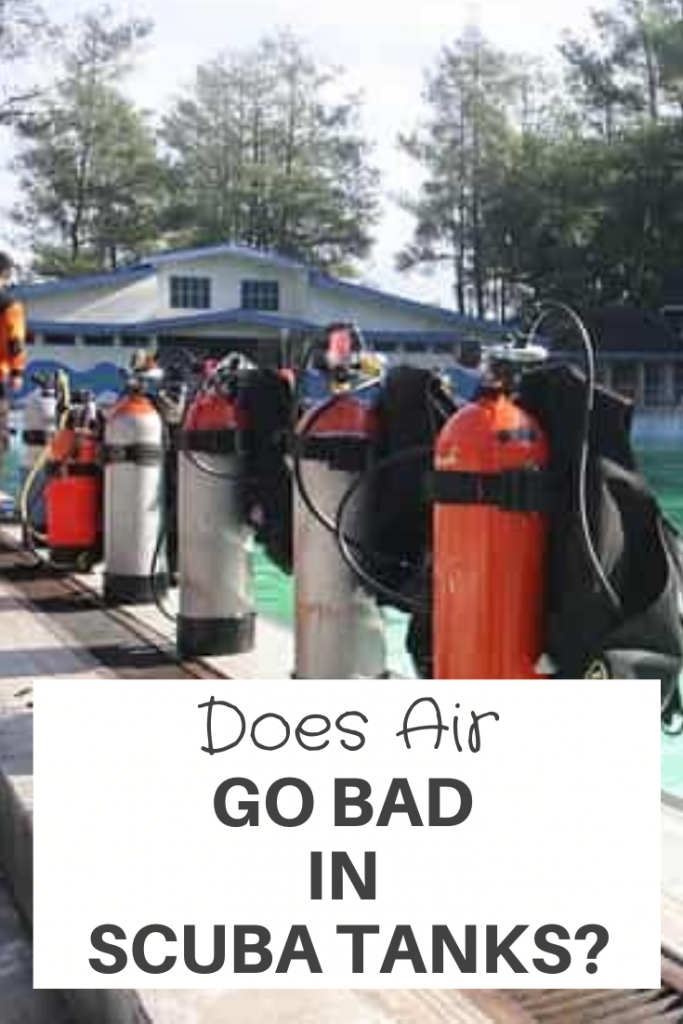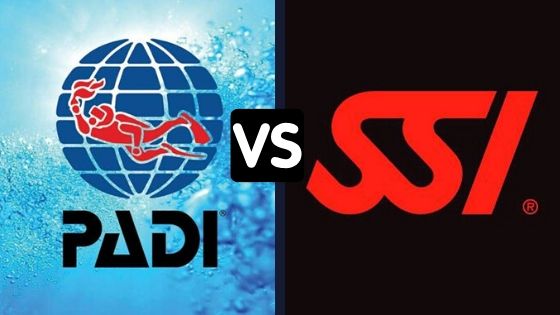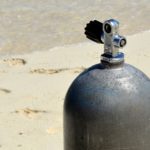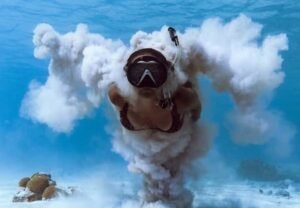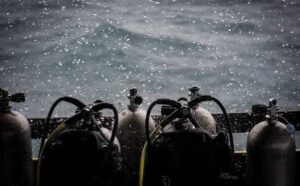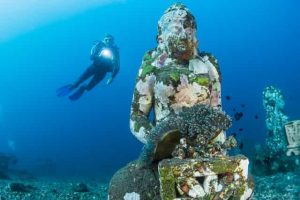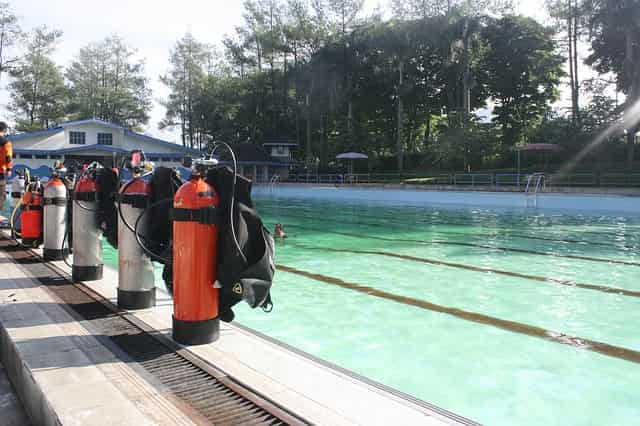
Does air go bad in scuba tanks is an interesting question. Technically speaking, that properly filtered air in a good clean tank should never go bad. It has been known that some divers have used scuba tanks that were filled 5 years ago. There are a number of factors that can affect the air in scuba tanks.
It is not advised to store air in a scuba tank for long periods of time. A tank should be stored with just enough pressure like around 200 psi to keep moisture out. Remember the higher the tank pressure, the greater the corrosion that may form inside.
In today’s post, we will go through does the air go bad in scuba tanks in more detail, so let’s get started!
Read more on common questions asked by divers
Does Air Go Bad In Scuba Tanks?
Again, technically speaking, that properly filtered air in a good clean tank should never go bad. But there are a number of factors that can affect the air in the scuba tank.
These are as follows.

Do A Visual Check
The scuba tanks part a crucial role in scuba diving, they need to be inspected at least once a year. That also includes if the tank has not been used.
This involves taking the valve off and thoroughly checking the tank for any of the following.
- Dents.
- Cuts.
- Stress lines.
- Bulges.
- Corrosion.
- Plating condition.
- Coating defects.
- Neck cracks.
From the visual inspecting, you find even the slightest evidence of damage and corrosion. If possible, ask for help from experts such as any qualified visual cylinder inspectors when visually checking on your scuba cylinder tanks.
Also, check if there was a hydrostatic test completed on the tank. If so check if you can find the date. The hydrostatic test should be carried out only by a qualified person.
Do The Hydrostatic Testing
Hydrostatic tests are required every five years. This test should be conducted by a certified technician. This technician essentially determines whether the tank is structurally sound and will not burst under pressure.
The testing method is to place the tank into a water-filled pressure chamber. And then see how much the tank expands under pressure by measuring the amount of water displaced.
There are regulations that state that the permanent expansion of the cylinder after such a procedure must be less than 10% under full test pressure. If it’s more, the cylinder is unsafe and can no longer be used.
If your tank passes the test then who will put the tank back together and applies a new sticker if he doesn’t find any fault.
Store Tank Cylinders In A Cool Place
Where you store your scuba tanks can affect it. Simply, you need to keep the tank cylinders out of direct sunlight, and away from heat as this can kill your gas cylinder.
Scuba tanks need to be stored in a cool, dry place where they are standing up and where can’t get knocked over.

Do Air Checks
It also helps to have airchecks before filling in the scuba tanks and closing those tanks. Make sure you don’t fill in too full so you can “breathe” underwater or don’t ever empty a tank completely as this can condensation to build up.
Don’t forget about the valves as well, valves placements are important to make sure your scuba cylinder tanks don’t explode when you go underwater.
Careful Handling
This is important also, you need to be careful when moving and handling the scuba tanks as been clumsy may and will cause dents and gouges on the tank.
This overtime will reduce the life span of the scuba tank and can cause corrosion of the metal as well as weaken the cylinder.
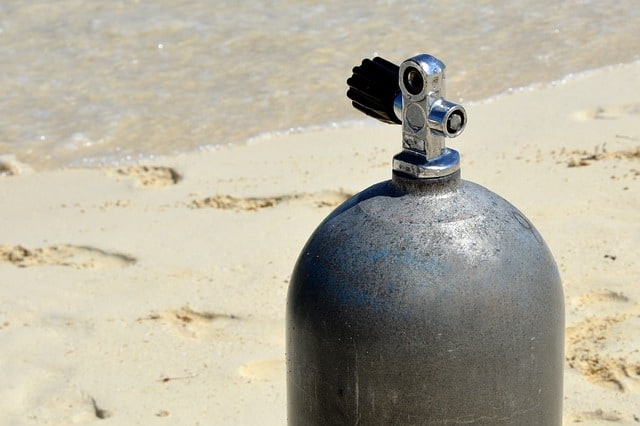
Capping Your Cylinders
Capping your scuba cylinder tanks is also helpful to prevent moisture and dirt built up. As with your scuba tanks.
It is important to store your caps in cool, dry places, such as in wooden boxes.
What Are The Pressures Scuba Tanks Are Rated For?
Simply there are 3 critical pressures that a scuba tank is rated for. These are.
- Working (or fill) pressure.
- Test pressure.
- Burst pressure.
The pressure ratios can vary depending on what standard the scuba tank is built to. Dive shops filling cylinders generally only go to the working pressure.
As each valve is fitted with a burst disc, which can crack or ruptures at anything slightly above the working pressure.
What Is A Scuba Tank Filled With?
Recreational scuba tanks are filled with compressed and purified air. This air contains around 20.9% oxygen. This is safe and standard within recreational diving.
Deeper divers and exceeding time limits requires the use of more specialized gas mixtures like nitrox, trimix, and oxygen.
Wrapping Up
Finally, air generally shouldn’t go bad in a scuba diving tank but there are certain factors that can affect the air such as where it is stored or the scuba tank could be damaged. It is not advised to use a scuba tank where the air has been stored for a long period of time.
And that’s it for now! I’d love to know if this guide on does the air go bad in scuba tanks has helped you. Let me know if you have any questions and let me know if there is more to add.
Did you enjoy this post? Then don’t forget to pin it!
